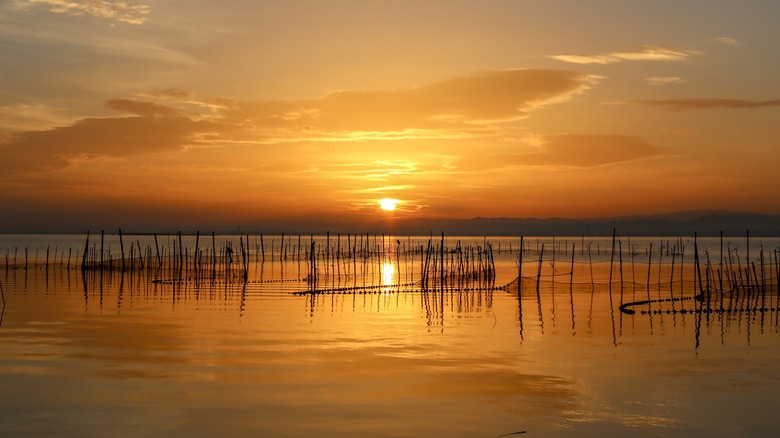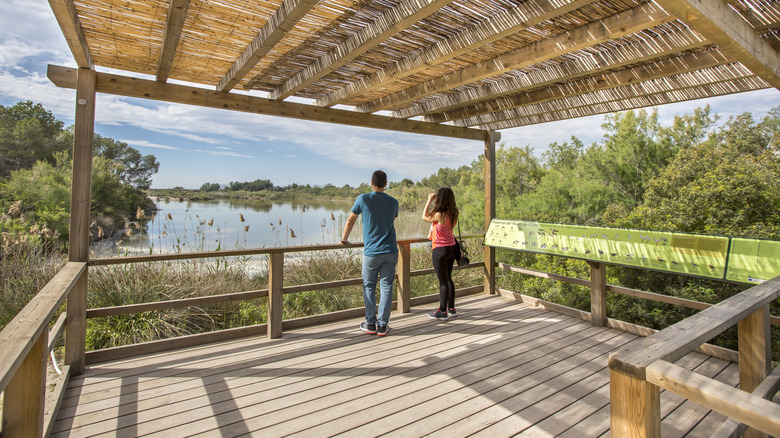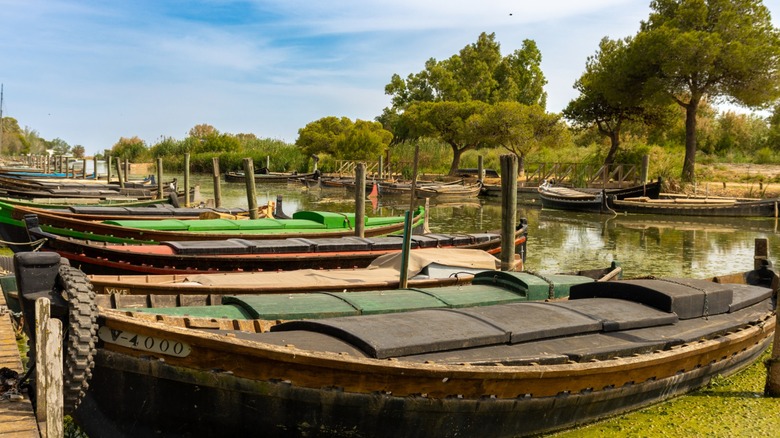Escape Valencia's Bustle At The City's Natural Park With A Large Lagoon And Dreamy Sunsets
As Spain's third biggest city and one of Europe's largest historic centers, Valencia has stepped into the spotlight thanks to its UNESCO sites (peep the Holy Grail in the medieval cathedral) and its cutting-edge design, such as the City of Arts and Sciences by Spanish starchitect Santiago Calatrava. But the main quality that sets the city apart is its abundance of green space. In fact, Valencia was designated as the 2024 European Green Capital and one of the BBC's top sustainable travel destinations. Beyond its 6-mile-long Turia Gardens, the country's largest urban park, Valencia is also home to Albufera Natural Park, a massive bird sanctuary and rice paddy. In the eighth century, the Moors planted rice fields here, which led to Valencia becoming the birthplace of paella and an underrated foodie city in Spain.
Just 6 miles outside the city, Albufera Natural Park feels a world away. The nature reserve encompasses nearly 52,000 acres of land, including Spain's largest freshwater lagoon, rice fields, salt marshes, pine forests, sand dunes, and windswept beaches. The best way to experience it is by boat, especially at sunset, though there are bike paths and hiking trails, too. This area is deeply rooted in fishing traditions, with the Fishermen's Association dating back to 1250. Native poet Vicente Blasco Ibáñez even used Albufera and the neighboring fishing village, El Palmar, as the backdrop for his 1902 novel "Cañas y Barro" (translated to "Reeds and Mud").
Visit the top sights in Albufera Natural Park
When you look at a map of Albufera Natural Park, you'll see wetlands, rice paddies, and a sliver of forest, called La Devesa, which cuts between the lagoon and the Mediterranean Sea. More than 350 species of birds, including pink flamingos and the rare marbled teal duck, nest at the 7,400-acre lagoon. Learn more about the flora and fauna at the Racó de l'Olla Interpretation Centre, then go birdwatching at the observation decks in the nature reserve.
Want to get out on the water? Cruise around on a handcrafted wooden boat (named "albuferencs"), passing canals and traditional cottages called "barracas." During the hour-long guided tour, a local fisherman will tell you about Albufera's history, wildlife, and customs, before stopping at sunset for photos. The sunset is spectacular from the jetty at Gola de Pujol, too.
Three types of rice are grown in Albufera and are used in Valencian paella (the original recipe has chicken and rabbit, not seafood). If you want to taste it, head to El Palmar, a charming fishing town on the banks of the lagoon, and book a table facing the rice paddies at Bon Aire restaurant or a canal-side seat at Arrocería Maribel. Note: It takes at least one hour to prepare the paella. The menus have other hyperlocal dishes like eel stew, Valencian mussels, and striped mullet. From October to April, there's also a morning fish market that sells sea bass and the fresh catch of the day.
What to know before visiting Albufera Natural Park
Albufera was affected by the DANA flood that hit Valencia in October 2024. As of publishing, some areas have recovered and reopened to tourism. Today, you can take boat tours of the lagoon for around $6 and eat at the restaurants in El Palmar. Six designated trails also wind through Albufera Natural Park, though most are still closed after the flood. Wild beaches like L'Arbre de Gos, Devesa, El Saler, and La Garrofera are open to the public, but be careful of the reeds and wood that have washed ashore. For pristine beach towns, ancient ruins, and secret coves, you may want to explore further up the coast.
There are many ways to get to Albufera Natural Park. From Valencia, hop on bus 24 or 25 for about 45 minutes to Embarcadero, or ride bus 24 an hour to El Palmar. Boat tours depart from piers at both stops. If you have the Valencia Tourist Card, the bus trip is free. By car, it's 20 minutes from the city center to Embarcadero, or half an hour to El Palmar.


